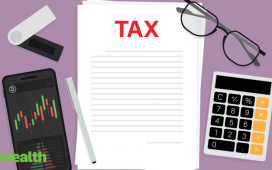Stronger economy is good news for general election winner
The upward revision to Q1 GDP growth from 0.6% quarter-on-quarter to 0.7% q/q this morning (see opening post) suggests whoever is Prime Minister this time next week may benefit from the economic recovery being a bit stronger than expected.
So says Paul Dales, chief UK economist at Capital Economics.
He told clients that the economy may grow faster than expected this year – a boost to the winner of next Thursday’s general election.
The larger rise in GDP in Q1 was mainly due to upward revisions to consumer spending (from +0.2% q/q to +0.4% q/q) and the contribution from net trade (from +0.4ppts to +0.6ppts) more than offsetting downward revisions to government spending (from +0.3% q/q to 0.0% q/q) and residential investment (from +4.1% q/q to +3.2% q/q).
The revision suggests that real GDP growth in 2024 as a whole may be more likely to come in a bit above our existing forecast of 1.0%.
Dales adds:
It now looks as though real household disposable income will grow by more than our forecast of 2.0% this year and we are expecting a solid 3.5% gain next year too. This underpins our forecast that consumer spending will be the main driver of a rise in GDP of at least 1.0% this year and about 1.5% next year. Should the saving rate fall back from its unusually high level, the economic recovery could be even stronger.
This is certainly good news for whoever will be the Prime Minister this time next week, although it could also contribute to the Bank of England cutting interest rates a bit slower than otherwise.
Key events
Curiously, there is also an issue with banking services at Virgin Money today.
It says some customers have been hit by delays to payments both in and out of their Virgin Money accounts…..
We’ve experienced an issue this morning where some customers have seen delays to payments both in and out of their Virgin Money account. If you have tried to send a payment from your Virgin Money account and received an error message, please do not try to make the payment again.
— Virgin Money (@VirginMoney) June 28, 2024
On the French elections, analysts at Investec say:
Politics continues to be the dominant focus in France too, with the first round of the National Assembly elections on Sunday 30th. Candidates with over 50% of the vote in each constituency will be elected straight away.
Where this does not happen, contenders with support of at least 12.5% will go to a second round on Sunday week (7 July). The risk continues to be that the decision to call a snap election backfires badly for Macron – polls still suggest that the Assembly will be dominated by the hard-right FN (with the most seats) and the left to hard-left NFP, rendering political ‘cohabitation’ between an FN government and a centrist Elysée difficult to say the least.
Nationwide customers are also experiencing some banking problems today, Sky News reports.
Nationwide said there was a “delay with some customers receiving their salary or pension payments today”, Sky says.
Risk premium on French debt hits highest since 2012 eurozone crisis ahead of election
The financial markets have taken the UK’s general election in their stride, but the same cannot be said across the Channel!
The premium investors demand to hold French government bonds, compared to debt issued by Germany, has today jumped to its highest since the euro zone debt crisis in 2012.
Reuters reports that the spread between the French and German borrowing costs – a measure of the extra return investors demand to buy France’s debt – has widened to 84.5 basis points today, the widest since September 2012.
[When bond prices fall, the yield (or effective interest rate) on the bond rises, and today French bonds have dropped more than the German equivalent].
That throws a spotlight on market nerves about this weekend’s parliamentary elections, in which the far-right National Rally and an alliance of left-wing parties are both polling ahead of president Macron’s centrists:
The first round of voting for the French national assembly takes place this weekend.
Yesterday, Marine Le Pen has said she expects her far-right National Rally (RN) party to win an absolute majority in France’s general election, form a government and take over at least some defence and armed forces decision-making – including on Ukraine.
European officials fear that a RN victory would pose existential questions about France’s role in the EU, and severely constraining the bloc’s capacity to get things done.
Closing Port Talbot blast furnaces early could have ‘devastating consequences’
There is fresh uncertainty today over the future of steelmaking in South Wales.
Tata Steel told workers yesterday it could to cease operations at its steel plant in Port Talbot two months earlier than planned because of a strike scheduled for early next month.
The company had been planning to shut down one of the blast furnaces by the end of June and the second one by September. But workers at the south Wales site have been told that Tata plans to cease operations at both furnaces no later than 7 July because of the strike by members of Unite, which starts the following day.
The company said the strike meant it could no longer be assured of sufficient resources being available to ensure safe and stable operations.
A Tata Steel spokesperson said:
“In the coming days, if we cannot be certain that we are able to continue to safely operate our assets in a stable fashion through the period of strike action, we will not have any choice but to pause or stop heavy end operations (including both blast furnaces) on the Port Talbot site.
The unios are protesting against plans to switch from blast furnace production to a greener electric arc furnace, with the loss of thousands of jobs.
More here:
Greenpeace UK’s head of climate, Mel Evans, warns that closing the blast furnaces early would have ‘devastating consequences’ for steel workers:
“Tata should be listening to its steelworkers, not slamming the door behind them as soon as they threaten to walk out. A better deal for green primary steelmaking is possible, and with less than one week to go until the UK elects a new and, potentially, more sympathetic government, closing the steelworks before those newly elected ministers have sat down at the negotiating table is a costly mistake.
It will have devastating consequences for the thousands of steelworkers set to lose their jobs, for the local community, and for steel production in the UK. We need a just transition for workers in the UK, and Tata must wait for a new government to ensure that Port Talbot and its steelworkers have a safe and secure future, producing greener, cleaner steel.”
Insurance company Allianz Trade has revised up the UK’s global risk rating.
The UK is one of 15 countries who are now seen as a less risky place to do business, due to stronger macro-economic figures..
Allianz Trade says that the UK’s global risk rating has been upgraded from AA2 to AA1, “in a pre-election boost to the next UK government”.
It explains:
Stronger GDP growth in the UK and effective inflation management signal a brighter outlook, tempered by concerns over service prices, continuous wage growth and a potential shift in government.
Portugal, Turkey, the UAE, Hong Kong, and Albania are among the other 14 to get an upgrade, while Estonia and Kuwait were downgraded:
Allianz Trade reports that global country risk is showing signs of improvement despite lingering uncertainty and geopolitical risks, adding:
Global economic growth is expected to recover slightly to +2.8% in 2024-25 after bottoming out in the first half of the year.
However, the manufacturing sector still faces excess supply and low demand, particularly in the Eurozone, where recession risks remain.
With inflation moderating at a slower pace, central banks in the US and Eurozone are taking a cautious approach to easing monetary policy that is reverberating into the monetary policy of emerging markets.
The increase in the household savings rate in the first quarter of this year (see earlier post) suggests that people may have more cash set aside, which they could spend later this year if economic confidence picks up.
Thomas Pugh, economist at audit, tax and consulting firm RSM UK, explains:
“The good news is that consumer confidence has been improving gradually over the last year and UK consumers’ confidence in their personal finances has reached the highest since 2021 as the impact of rising real wages filters through into people’s pockets. We expect this to continue over the next year. That suggests household savings patterns will start to return to more normal levels in the first half of the year.
“On that basis, we think the improvement in households’ real incomes that is set to intensify later this year will translate into an increase in spending that will drive the emerging economic recovery and finally drag the UK out of stagnation.”
£10m+ ad campaign with Trevor McDonald was filmed for shelved NatWest shares sale

Mark Sweney
A “Tell Sid”-style ad campaign featuring Sir Trevor McDonald was filmed to promote the government’s now shelved plan to sell state-owned NatWest shares to the public, the Guardian revealed this morning.
The nationwide campaign – which included TV ads featuring the veteran newsreader and presenter popping up around the UK asking the public “Are you in?” – is understood to have been backed by a large-scale media budget in excess of £10m.
Media sources said the campaign had been scheduled to launch within days when Sunak pre-empted it by announcing an early summer election outside 10 Downing Street on 22 May.
While much of the eight-figure ad spend set aside for it by the government will not have been used, some of the budget will have been spent on coming up with and filming the concept.
More here….
UK house prices tipped to rise by end of 2024
Whoever wins next week’s election could also inherit a recovering housing market.
UK house prices are tipped to climb slightly higher by the end of the year, but to still lag household income growth.
Property data site Zoopla forecasts that UK house prices will be 1.5% (£3,900) higher by the end of 2024, after prices were flat in May.
Zoopla’s latest house price index shows that UK house prices are currently ‘over-valued’ by 8%, but are set to return to ‘fair value’ by the end of the year as incomes rise.
It says:
House prices have seen rises across all areas over the last 3 months to May 2024, however annual house price growth remains negative across southern England despite rising elsewhere.
The housing market continues to shrug off the UK election campaign (just a week to go!), with sales agreed 8% higher than a year ago, and demand 6% higher.
Richard Donnell, executive director at Zoopla says:
“The housing market continues to adjust to higher borrowing costs through modest house price falls and rising incomes. Buyers using mortgages are also relying on longer mortgage terms to gain that extra few percentage points of buying power to afford a home.
The general election campaign has had a limited impact on market activity although the seasonal summer slowdown is arriving. Sales agreed continued to increase and more homes for sale means more buyers looking to move in the second half of the year. The timing of the first cut in the base rate is a key moment and will give a boost to both market sentiment and sales activity. Overall we expect house prices to be 1.5% higher over 2024”
Rate increases and election speculation didn’t manage to dent house prices as much as anticipated, only slow the rate of sales. According to @Zoopla HPI, annual house price inflation remained flat in May 2024 but they predict prices to increase by 1.5% by the end of the year,… pic.twitter.com/6gMB40Q5nh
— Emma Fildes (@emmafildes) June 28, 2024
HSBC customers suffer online banking outage
Away from the GDP report, customers of HSBC bank are having trouble accessing their online and mobile banking services.
HSBC says it’s “really sorry”, and are working hard to fix it.
We’re really sorry that some customers are having issues accessing personal online and mobile banking. Our IT teams are working hard to get these services back to normal. You can still authorise online card purchases via SMS.
— HSBC UK (@HSBC_UK) June 28, 2024
Several customers are unhappy with the disruption; data on website DownDetector shows that more than 7,000 customers had complained of problems this morning.
I’m pretty sure if you or I wasn’t able to fulfil our obligations to the bank, we would be charged for it. It is ridiculously regularly now that the bank can’t fulfil its obligations to its clients. It never comes back the other way though
— PW (@pjwilson1990) June 28, 2024
This is simply not good enough! You caused chaos for me the last time. I shall make an official complaint
— Sarah Carruthers 💙 (@SarahJazz1) June 28, 2024
Thomas Pugh, economist at RSM UK, also predict the economy kept growing in the current quarter, saying:
“All the data suggests that the economy is set to continue to rise in Q2.
“We then expect growth to accelerate in the second half of this year and into 2025 as sharply lower inflation, tax cuts and falling interest rates give households an income boost.”
EY ITEM Club: UK could enjoy a decent consumer-led recovery
Looking ahead, the EY ITEM Club expects UK GDP to grow at a decent pace in Q2 (April-June).
However, growth probably won’t be as fast as the 0.7% recorded in Q1
Peter Arnold, EY UK chief economist, says:
The composite Purchasing Managers’ Index (PMI) averaged the same level in Q2 as Q1. However, the earlier-than-usual Easter appeared to boost consumer activity in March at the expense of April, while strike action in the healthcare sector in June will likely drag on output this month. Therefore, the EY ITEM Club thinks quarter-on-quarter GDP growth will probably come in a bit softer than Q1’s strong rise.
“Further ahead, the EY ITEM Club expects low inflation and persistently strong pay growth to mean real household incomes continue to grow strongly.
Provided rising consumer confidence results in households gradually moving away from the cautious sentiment exhibited over the last year, the EY ITEM Club thinks there is a prospect of a decent consumer-led recovery.”
Current parliament worst for living standards growth since the 1950s
Although the pick-up in growth in January-March is clearly welcome, the broader economic picture is that living standards are lower than at the end of the previous parliament.
New data from the Resolution Foundation this morning shows that real per capita household disposable incomes were lower in early 2024 than they were back in late 2019,
They have calculated that RHDI has fallen by 0.6% since the end of 2019, or 0.1 per cent a year on average, leaving average incomes £120 a year lower per person over the whole period since the last election.
That means the current parliament remains on track to be the worst for living standards growth since the 1950s.
This has likely been the worst parliament for living standards growth for at least 70 years. Going back even further, incomes fell in 1951 (a short parliament) and over 1918-22. pic.twitter.com/Z7JARiFfmJ
— Adam Corlett (@adamcorlett) June 28, 2024
This is partly due to recent economic shocks, such as the Covid-19 pandemic and the cost of living crisis.
But the living standards slowdown can be traced back further – since 2010, typical real non-pensioner household disposable incomes have grown by just 0.5 per cent a year on average.
Adam Corlett, principal economist at the Resolution Foundation, says:
“The last five years have been terrible for living standards growth. Disposable incomes in early 2024 were still lower than they were at the 2019 election, by around £120 per person. Income growth over the parliament so far has been worse than in any other since the 1950s, and the third worst in post-Edwardian Britain.
“Britain is far from alone in experiencing a tough five years – many other countries have been badly affected by Covid-19 and the cost-of-living crisis straight after that. But Britain’s longer-term record on growth is also weak and we remain poorer than many of our peers. Addressing this great living standards slowdown is the ultimate test for whomever wins the election.”
In a far more edifying televised US Presidential debate back in 1980, Ronald Reagan famously asked “Are you better off than you were four years ago?”
Fast forward to Britain in 2024, and the answer, according to the latest @ONS National Accounts data, is sadly no. https://t.co/oDxXWYTcpD
— Resolution Foundation (@resfoundation) June 28, 2024









